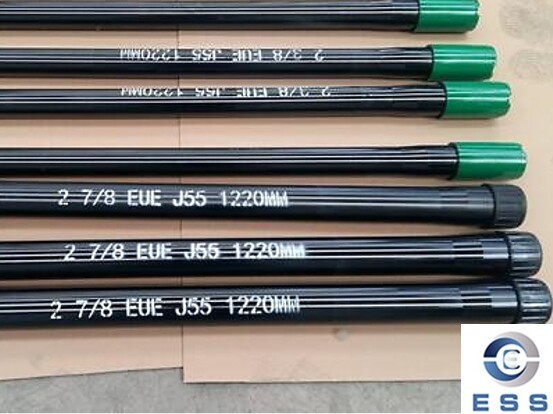
Seamless Pup Joints vs. Welded Pup Joints
In industrial fields such as oil and gas
drilling, petrochemical pipelines, and pressure equipment, pup joints are important components for connecting and extending the length of pipelines.
According to different manufacturing processes, pup joints can be mainly
divided into two categories: seamless pup joints and welded pup joints. There
are significant differences between the two in terms of structural performance,
usage scenarios, and costs.
Definition difference: different forming
processes, structure determines performance
1. Seamless pup joint
It refers to a short section made of the seamless
steel pipe. It is formed in one step by heating, perforating, rolling or
extruding a whole round steel billet. There is no weld as a whole, and the
structure is continuous and dense.
2. Welded pup joint
It is made of two or more sections of steel
pipes spliced together by welding. Common processes include butt welding, girth
welding, etc., and the welds are clearly visible.
Since seamless pup joints have no welds,
they naturally have higher consistency and integrity, and are a more stable
choice for structural strength.
Performance comparison: seamless is
stronger, welding is more flexible
1. Seamless pup joint
Uniform inner and outer walls, no weld
stress concentration points, high pressure resistance. Smooth surface, less
impurities, strong corrosion resistance. Better tensile strength and ductility,
suitable for harsh working conditions. The overall structure has no joints,
more suitable for critical occasions.
2. Welded pup joint
Stress concentration is easy to occur at
the weld, and the pressure resistance is slightly lower. The weld area is a
weak point, prone to pitting or cracking, generally suitable for normal
pressure or non-critical components. The welding quality is affected by labor
or equipment, and the risk is slightly higher.
Cost comparison: seamless quality is
superior, welding is economical and efficient
Although seamless pup joints have
advantages in performance, their raw materials and manufacturing process
requirements are higher, so the production cost is generally higher than that
of welded pup joints.
Welded pup joints can be flexibly
customized in length according to project needs, with high material utilization
and stronger economy, suitable for projects with limited budgets or
non-high-pressure scenarios.
Typical application areas
1. Seamless pup joints
Applicable to the field of oil and gas
drilling, which has high requirements for pressure resistance and corrosion
resistance and complex operating environment. Seamless pup joints are often
used and can be used in conjunction with the drill pipe and casing pipe.
It is also suitable for chemical pipelines and pressure vessels, because this
field requires long-term pressure bearing and needs to ensure sealing and
structural strength.
2. Welded pup joints
Welded pup joints are often used in
building structures and power pipelines, which are cost-sensitive, have low
loads, and relatively simple working conditions; general water pipes and
equipment connections, which are frequently used but have low performance
requirements and are economical and practical.
Summary
For high temperature, high pressure,
corrosive media or continuous operation conditions, it is recommended to use
seamless pup joints first to ensure the safety and stability of the system. If
the project working conditions are stable and sensitive to cost control, welded
pup joints can be selected to reduce the budget.













 Eastern Steel Manufacturing Co.,Ltd not only improve product production and sales services, but also provide additional value-added services. As long as you need, we can complete your specific needs together.
Eastern Steel Manufacturing Co.,Ltd not only improve product production and sales services, but also provide additional value-added services. As long as you need, we can complete your specific needs together.










